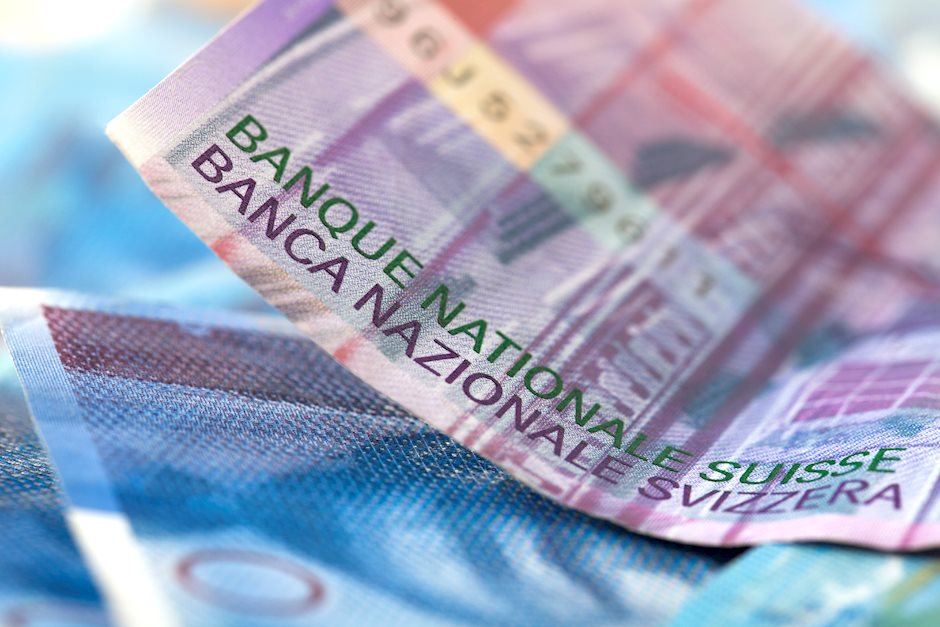USD/CHF edges higher above 0.8700 amid renewed US Dollar demand
- USD/CHF gains ground to near 0.8730 in Friday’s early European session.
- The Fed cut interest rates by a quarter point at the November meeting on Thursday.
- The safe-haven flows could underpin the Swiss Franc.

The USD/CHF pair drifts higher to around 0.8730 during the early European session on Friday. The renewed Greenback demand provides some support to the pair. Traders brace for the advanced US Michigan Consumer Sentiment data for November and the speech from the Federal Reserve’s (Fed) Governor Michelle Bowman later on Friday.
The US Fed on Thursday decided to cut its borrowing costs by 0.25 basis points (bps), half the size of its September reduction, bringing down the federal funds rate to a range of 4.5% to 4.75%. Fed Chair Jerome Powell said during the press conference that the "economy is strong overall and has made significant progress toward our goals over the past two years.”
Fed’s Powell emphasized that the Fed doesn't want to move too quickly on the interest rate nor move too slowly and do unnecessary damage to the labor market. The Fed will continue assessing data to determine the "pace and destination" of interest rates. Meanwhile, the US Dollar (USD) attracts some buyers as investors expect Trump's policies would spur economic growth and inflation and reduce the pace of interest rate cuts.
On the other hand, the uncertainty surrounding global economic growth and the ongoing geopolitical tensions in the Middle East could boost the safe-haven flows, benefiting the Swiss Franc (CHF). President-elect Donald Trump's comeback victory on Tuesday undermines diplomatic attempts to stop Israel's multifront conflicts in the near term and calls into question US long-term support for Israel’s military campaigns against Iran and its proxies.
Swiss Franc FAQs
The Swiss Franc (CHF) is Switzerland’s official currency. It is among the top ten most traded currencies globally, reaching volumes that well exceed the size of the Swiss economy. Its value is determined by the broad market sentiment, the country’s economic health or action taken by the Swiss National Bank (SNB), among other factors. Between 2011 and 2015, the Swiss Franc was pegged to the Euro (EUR). The peg was abruptly removed, resulting in a more than 20% increase in the Franc’s value, causing a turmoil in markets. Even though the peg isn’t in force anymore, CHF fortunes tend to be highly correlated with the Euro ones due to the high dependency of the Swiss economy on the neighboring Eurozone.
The Swiss Franc (CHF) is considered a safe-haven asset, or a currency that investors tend to buy in times of market stress. This is due to the perceived status of Switzerland in the world: a stable economy, a strong export sector, big central bank reserves or a longstanding political stance towards neutrality in global conflicts make the country’s currency a good choice for investors fleeing from risks. Turbulent times are likely to strengthen CHF value against other currencies that are seen as more risky to invest in.
The Swiss National Bank (SNB) meets four times a year – once every quarter, less than other major central banks – to decide on monetary policy. The bank aims for an annual inflation rate of less than 2%. When inflation is above target or forecasted to be above target in the foreseeable future, the bank will attempt to tame price growth by raising its policy rate. Higher interest rates are generally positive for the Swiss Franc (CHF) as they lead to higher yields, making the country a more attractive place for investors. On the contrary, lower interest rates tend to weaken CHF.
Macroeconomic data releases in Switzerland are key to assessing the state of the economy and can impact the Swiss Franc’s (CHF) valuation. The Swiss economy is broadly stable, but any sudden change in economic growth, inflation, current account or the central bank’s currency reserves have the potential to trigger moves in CHF. Generally, high economic growth, low unemployment and high confidence are good for CHF. Conversely, if economic data points to weakening momentum, CHF is likely to depreciate.
As a small and open economy, Switzerland is heavily dependent on the health of the neighboring Eurozone economies. The broader European Union is Switzerland’s main economic partner and a key political ally, so macroeconomic and monetary policy stability in the Eurozone is essential for Switzerland and, thus, for the Swiss Franc (CHF). With such dependency, some models suggest that the correlation between the fortunes of the Euro (EUR) and the CHF is more than 90%, or close to perfect.
Author

Lallalit Srijandorn
FXStreet
Lallalit Srijandorn is a Parisian at heart. She has lived in France since 2019 and now becomes a digital entrepreneur based in Paris and Bangkok.

















